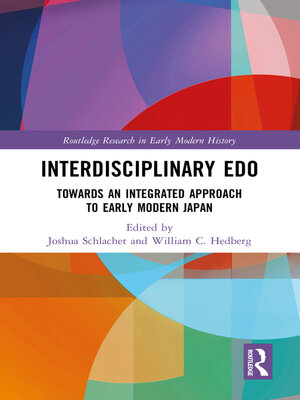Interdisciplinary Edo
ebook ∣ Toward an Integrated Approach to Early Modern Japan · Routledge Research in Early Modern History
By Joshua Schlachet

Sign up to save your library
With an OverDrive account, you can save your favorite libraries for at-a-glance information about availability. Find out more about OverDrive accounts.
Find this title in Libby, the library reading app by OverDrive.



Search for a digital library with this title
Title found at these libraries:
| Library Name | Distance |
|---|---|
| Loading... |
Interdisciplinary Edo brings together scholars from across the methodological spectrum to explore new approaches to innovative humanistic research on early modern Japan (1603–1868). It makes an intervention in the field by thinking across conventional disciplinary boundaries toward a holistic and cohesive approach to Japan's early modern period. By taking historical, religious, literary, and art historical analyses into account, the contributors hope to begin a new, transdisciplinary conversation on political formation, social interaction, and cultural proliferation under the "Great Peace" of the Tokugawa regime.
This book comprises 14 essays by specialists of history, literature, religious studies, and art history. Major topics include Edo-period Japan's cultural, intellectual, and economic connections to the early modern world; environmental humanities and material culture; popular culture and aesthetics; and the question of how contemporary academic demarcation lines impact the current study of Tokugawa Japan. Individual essays range in scale from individual paintings and works of prose fiction to the tectonic plates underlying the Yamashiro basin and span topics from overseas medicinal exchange and premodern cartography to the history of intoxication.
Interdisciplinary Edo will be of immediate interest to all scholars focusing on the early modern period, as well as to researchers studying other periods of Japanese studies. As part of an ongoing and inclusive process of pluralizing and deprovincializing global conceptions of early modernity, this book will contribute to historiographical interventions outside Japan studies as well.







